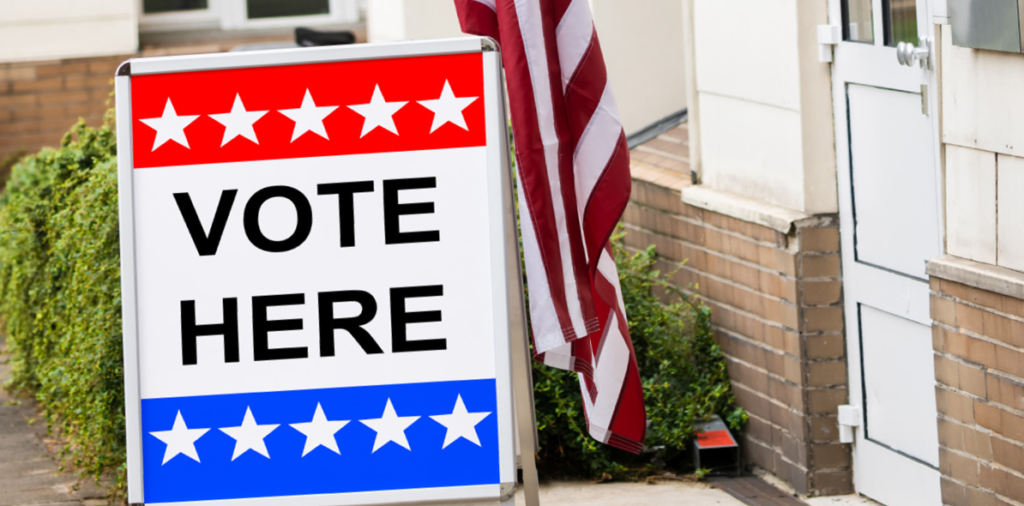Incomplete!
Lawmakers have nothing to show but an abysmal report card from the 2022 legislative session.
The 2022 legislative session was an opportunity for Minnesota’s public servants to confront the issues plaguing the state and work to alleviate those problems for the benefit of all residents. American Experiment offered policy directives on five key issues, that if followed, would help turn Minnesota from a state on a downward trajectory to one on a path to renewal. This is how the session turned out.
I. Budget — Spending Minnesota’s $9.3 billion tax surplus
CAE launched the “Give It Back” campaign emphasizing
1. permanent tax cuts
2. reduction in the overall tax rates for individuals and corporations
Session outcome:
The 2022 session started with such optimism for a permanent tax cut. The Senate proposed eliminating Social Security income from taxes and cut the bottom income tax rate from 5.35 percent to 2.80 percent. Gov. Tim Walz proposed a one- time rebate check of $1,000 and House Democrats proposed using the surplus to redistribute wealth from taxpayers to non-taxpayers. At least everyone was talking taxes, and that talk resulted in an end-of-session tax deal that kept the Social Security tax cut and a more modest cut to the lowest income tax bracket. Even with $1 billion in income redistribution, the compromise bill still qualified as “Giving It Back.”
But alas, the agreed-upon tax bill was held hostage by House Democrats who wouldn’t pass it unless their demands in K-12 spending were satisfied. The teachers’ union was demanding new money from the legislature to help districts like Minneapolis who agreed to unsustainable new teacher contracts.
Hero: Senate Republican Leader Jeremy Miller for refusing to agree to $4 billion in new spending just to get $2.5 billion in tax cuts.
Villains: Education Minnesota for holding the tax bill hostage for more K-12 spending; House Democrats and Gov. Walz for their cowardice in facing the union.
GRADE: INCOMPLETE
II. Health Care — Rising health care and Medicaid costs
CAE proposed
1. codifying federal price transparency
2. repealing moratoria on new nursing home and hospital construction
3. making a permanent nursing licensure compact
4. increasing public welfare program integrity and accountability
Session Outcome:

The Senate passed a bill to add Minnesota to the list of 39 other states belonging to the Nurse Licensure Compact (NLC). Joining the NLC would allow Minnesota nurses to obtain a single license to work in multiple states. The nurses’ union fought the proposal, so it did not progress in the House.
Progress was made on price transparency legislation with the introduction of a bill in the House and Senate. American Experiment worked with the DFL House author of the bill but there was not enough time to work out all the details of this complicated legislation.
Hero: Rep. Steve Elkins, a House Democrat willing to work on price transparency reform.
Villain: The nurses’ union for fencing out nurses from other states as they op- posed joining the NLC.
GRADE: INCOMPLETE
III. Energy — Green energy initiatives and energy affordability
CAE proposed easing the financial burden of bad energy policy
1. repealing the Next Generation Energy Act (NGEA)
2. passing CAE’s proposed Clean Energy Freedom Act, which includes legalizing construction of new nuclear power plants in Minnesota
3. repealing mandates requiring auto dealers to stock more costly electric vehicles
4. making the Public Utilities Commission an elected body
Session Outcome:
Many of American Experiment’s energy proposals did receive committee hearings in the Senate, and policy fellow Isaac Orr spent several days testifying in front of the Energy and Utilities Finance and Policy Committee. Progress was made in allowing nuclear power to be included in the mix of energy sources, with new allies appearing from the Left. It’s getting harder for environmentalists to argue against the cleanest form of energy on the market.
Gov. Walz’s idea to create gas station inflation by adopting California’s fuel standards became so toxic that the House changed their bill hearing to “informational” status to avoid a recorded vote. Preventing the implementation of the California fuel standard is a policy win for the 2022 session.
Hero: Sen. Andrew Mathews for championing strong energy policy.
Villain: Rep. Jamie Long, Chair of the House Energy Committee, for pushing renewables, electric vehicle charging infrastructure, and gas station inflation.
GRADE: C (FOR STOPPING BAD POLICY)
IV. Education — Academic excellence and accountability
CAE proposed an emphasis on transparency, accountability, and combating Critical Race Theory
1. requiring school districts to make teaching material available to the public
2. prioritizing school choice initiatives
3. aligning school board elections with the November general election
4. enacting a Parent’s Bill of Rights
5. prohibiting the teaching of Critical Race Theory in schools
Session Outcome:
As usual, most of the discussion around K-12 education had to do with money. It’s the second largest part of the state budget, and we’re only halfway through the largest spending increase in the last 15 years. The Senate did pass a Parent’s Bill of Rights loosely based on American Experiment’s work, but they watered down the bill considerably before passage.
In conference committee, Senate Republicans offered House Democrats what they said they wanted most: hundreds of millions of dollars in new spending. But what Democrats actually wanted most was new policy mandating the teaching of ethnic studies across all grades and all subjects. Republicans were wise not to acquiesce.
Hero: Sen. Roger Chamberlain, Chair of the Senate Education Committee, for standing strong against ethnic studies.
Villain: House Democrats for prioritizing ethnic studies ahead of money for students.
GRADE: C (FOR STOPPING BAD POLICY)
V. Crime — Escalating violence and lawlessness
CAE proposed an anti-crime agenda
1. enact a strong “Three Strikes” law for violent and career criminals
2. strengthen mandatory sentencing rules for judges and prosecutors
Session Outcome:
Senate Republicans passed a very strong public safety bill including American Experiment’s two top priorities, but for some reason they ignored the polling data and failed to market the proposals correctly. For example, their proposal for a Three Strikes law was renamed “Aggravated & Consecutive Sentences for Violent or Repeat Offenders.” Good policy, bad marketing.
The House stubbornly doubled down on their top solution for reducing violence: more money for unaccountable non-profits. The House and Senate were further apart on public safety than any other legislative issue, so it’s no surprise nothing got done.
Hero: Sen. Warren Limmer, Chair of the Public Safety Committee, for passing a strong bill.
Villain: Rep. Cedric Fraizer, Chair of the House Public Safety Committee, for continuing to ignore lawlessness in Minnesota.
GRADE: INCOMPLETE
Bonus Issue! — Election Reform
A relatively minor bill moved through a Senate committee and into the Omnibus Government Operations bill that could do more to expose voter fraud than anything else being considered. The bill added much-needed clarity to the classification of data (challenged ballots) in the statewide voter file as public. Challenged ballots are identified by counties when red flags are raised about the eligibility of voters who registered to vote on election day. If there is voter fraud occurring in Minnesota, challenged ballots would be the first place to look, and this provision made that data public.

This omnibus bill was the subject of some end-of-session drama when the House DFL Chair was caught on tape telling the Senate Republican Chair he received a last-minute call from Walz and could no longer vote for the previously agreed upon bill. In the final hours of the session, Walz was asking House Democrats to back away from the table, even in areas of agreement.
Hero: Sen. Mark Koran, author of the elections data legislation.
Villain: Gov. Walz, for sabotaging the end of session by asking House Demo- crats not to support an agreement. GRADE: INCOMPLETE